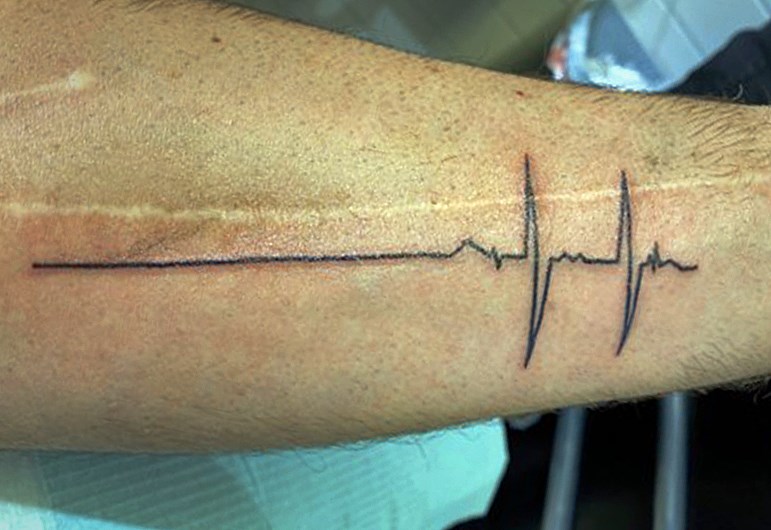It’s been five years since Ken Carrusca’s heart stopped during a hockey game at a Burnaby ice arena.
This week, he is in Victoria to tell politicians about the reasons he’s still alive – an automated external defibrillator (AED) and teammates who knew CPR.
Carrusca, who is now 55 years old, still gets emotional when he talks about how close his sons came to not having a dad five years ago, when he collapsed on the ice during an Adult Safe Hockey League game at Burnaby 8 Rinks.
His teammates were terrified as he lay on the ice rigid, pulseless and not breathing, but one of them was an ex-paramedic and started CPR, while someone else grabbed a nearby AED that shocked his heart back to life.
Since being brought back from the brink of death, Carrusca has become an advocate for CPR training and getting AEDs into more places.
He sits on the advisory board of the Heart and Stroke Foundation and is in Victoria today (Feb. 21) to make a presentation at an MLA luncheon put on by the foundation.
Heart and Stroke has hosted such events before, but COVID-19 has interrupted their efforts for the past few years.
Carrusca will present a slide show about his experience and about Denise Giammaria who pushed to have AEDs installed at 8 Rinks after her fit, 35-year-old husband, Gianfranco, died there of a sudden cardiac arrhythmia during a hockey game in 2006.
“I was actually just doing a dry run-through,” Carrusca said of his presentation, “and, I’ll tell you, it’s still emotional.”
Heart and Stroke hopes meeting face-to-face with provincial legislators and sharing Carrusca’s story will raise awareness about the life-and-death importance of CPR training and AEDs.
“Getting to see him and hear his story and hear about the time he’s had with his sons that he wouldn’t have gotten if he hadn’t been rescued, it really makes a difference,” said Robyn Jones-Murrell, senior vice president of Western Canada Heart and Stroke. “Without that, it just seems so abstract. You may not know anyone who’s had a cardiac arrest. Of course, you think ‘Oh, that’s terrible,’ but you don’t really think about the actual person, so having him stand up there and tell his story is quite unbelievable. Unfortunately, so often, it doesn’t end that way.”
Jones-Murrell said the aim of the luncheon is to garner support for her foundation’s initiatives, including a new “gamified” CPR training program it plans to roll out in May.
It all comes down to saving lives, according to Jones-Murrell, who noted the overall survival rate for out-of-hospital cardiac arrests is still lower than 10 per cent.
“We want to see that go up,” she said. “We want to see more people surviving from cardiac arrest. That’s overall the big vision.”
Follow Cornelia Naylor on Twitter @CorNaylor
Email [email protected]



